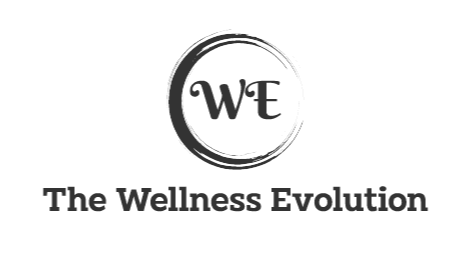Embracing Imposter Syndrome:A Sign of Growth for Health Coaches
Estimated reading time: 10 minutes
As a new health coach, have you ever found yourself thinking:
- "Who am I to give health advice? I'm not perfect myself."
- "What if my clients realize I don't know everything?"
- "I'm not as qualified as other coaches out there."
- "I'm just faking it until I make it, but what if I never make it?"
If these thoughts resonate with you, you're not alone. Welcome to the world of Imposter Syndrome (IS), a common experience among health coaches, especially those early in their careers.
The Emotional Rollercoaster of a New Health Coach
Picture this: You've just completed your health coaching certification. You're excited, ready to change lives, and then... panic sets in. Your heart races as you prepare for your first client session. Your palms sweat as you set up your website. You hesitate before hitting 'post' on your first social media announcement. These physical sensations are your body's response to the emotional turmoil of stepping into a new identity – ah the joys of becoming a health coach!
But here's a perspective shift that might surprise you: experiencing Imposter Syndrome can actually be a good thing.
Why Imposter Syndrome Means You're Growing
Imposter Syndrome is often a sign that you're stepping out of your comfort zone and into your growth zone. It means you're taking on new challenges, expanding your skills, and evolving as a professional. In essence, it's an indicator that you're progressing in your career as a health coach.
Remember the first time you tried to explain macronutrients to someone?
Or when you had to create a meal plan for a client with specific dietary needs?
That uncomfortable feeling, that fear of not being 'good enough,' is actually your brain recognizing that you're doing something new and important.
Or when you had to create a meal plan for a client with specific dietary needs?
That uncomfortable feeling, that fear of not being 'good enough,' is actually your brain recognizing that you're doing something new and important.
Understanding Imposter Syndrome Through the 3-Brain Concept
To better comprehend why we experience Imposter Syndrome, it's helpful to explore the concept of the three-brain model:
- The Reptilian Brain (Survival)
- The Mammalian Brain (Emotional)
- The Neocortex (Rational)
Imposter Syndrome is closely linked to our mammalian brain, which is responsible for emotions, social behaviors, and our sense of belonging.
The Primal Fear of Rejection
Our mammalian brain associates the feeling of not belonging with a primal fear. For our ancient ancestors, being cast out of the tribe often meant death, as survival alone in the wild was unlikely. This deep-seated fear of rejection is still very much alive in our subconscious.
Imagine standing in front of a group for your first workshop. Your mouth goes dry, your heart pounds. In that moment, your mammalian brain isn't just worried about messing up a presentation – it's frantically trying to protect you from the perceived threat of social rejection.
Your Lower Brain's Misguided Protection
As you attempt to step into the role of a health coach (etc.), you're adopting a new identity. Your mammalian brain, in its attempt to keep you safe, may resist this change. It prefers the known, proven identities that have already been accepted by your social group.
You might find yourself thinking: "I was comfortable as a fitness enthusiast. People accepted me. But as a coach? What if they judge me? What if I fail?"
This part of your brain also keeps a record of past negative experiences and works tirelessly to protect you from reliving them. Perhaps you remember a time when you gave advice that didn't work out, or when you felt embarrassed speaking in public. Your brain catalogs these experiences and uses them as evidence to hold you back.
These lower brain functions are incredibly fast and powerful. They can sabotage even your most determined efforts to forge your new identity as a health coach. However, it's crucial to remember that while these brain functions are powerful, they're not always accurate in their assessment of threats.
In fact, think of your lower brain as an overenthusiastic 5-7 year old with a vivid imagination. Just as a child might insist there's a monster under the bed after watching a mildly spooky cartoon, your mammalian brain might declare "Certain doom!" at the prospect of posting your first Instagram reel about healthy eating habits.
This part of your brain, bless its heart, can conjure up scenarios worthy of a Hollywood thriller from the simple act of sending a newsletter to your mailing list. "What if everyone unsubscribes? What if they report you as spam? What if the email police come and arrest you for improper use of the words 'kale smoothie'?" Sounds ridiculous when put that way, doesn't it? But that's often how our lower brain operates – with all the drama and limited life experience of a young child.
Overcoming Imposter Syndrome: Beyond Willpower
Trying to overcome Imposter Syndrome through sheer willpower often proves ineffective, and can waste a lot of time, money and energy, as well as cause needless suffering! Instead, a more nuanced approach is needed. Think of your mammalian brain as a child - it needs understanding, reassurance, and guidance.
Here's a more effective strategy:
Listen to your fears: Acknowledge the concerns your lower brain is raising. For example, "I hear that you're worried about being judged by clients."
Understand the protective intent: Recognize that these fears come from a place of trying to keep you safe. "I understand you're trying to protect me from feeling embarrassed or rejected."
Reassure and educate: Like you would with a child, gently explain to this part of your brain why its fears may be unfounded in this situation. "While it's true that I'm new at this, remember that I've studied hard and have valuable knowledge to share. Even if I don't know everything, I can still help people improve their health."
Build trust and cooperation: By addressing these concerns compassionately, you can create a more harmonious relationship between your rational goals and your emotional needs. "Let's work together. We can start small, celebrate each success, and learn from any setbacks. This way, we grow stronger and more confident together."
This approach allows for a more authentic self-expression and can lead to greater success and fulfillment in your role as a health coach.
Remember, experiencing Imposter Syndrome doesn't mean you're unqualified or a fraud. It means you're growing, evolving, and stepping into new territory. Embrace it as a sign of your progress, and use the strategies outlined here to navigate it effectively.
By understanding and working with your brain's protective mechanisms, you can move forward with confidence in your journey as a health coach, making a real difference in the lives of your clients. Your unique experiences, your passion for health, and your willingness to grow are all valuable assets. Trust in your ability to learn, adapt, and positively impact others' lives.
You've chosen a path of continuous growth and learning. Embrace the discomfort, acknowledge your progress, and remember – every expert was once a beginner.
Your imposter syndrome is not your weakness; it's a sign that you're exactly where you need to be on your journey to becoming an exceptional health coach.
Your imposter syndrome is not your weakness; it's a sign that you're exactly where you need to be on your journey to becoming an exceptional health coach.
Take Your Next Step in Overcoming Imposter Syndrome
If you're ready to tackle your Imposter Syndrome head-on, or if you want to learn powerful strategies to help your clients overcome their own IS, I have an exciting opportunity for you.
I'm running a masterclass on Imposter Syndrome specifically designed for health coaches. In this class, you'll learn:
- Advanced techniques to reframe IS and use it as a growth tool
- Practical exercises to build confidence in your coaching abilities
- Strategies to help your clients overcome their own Imposter Syndrome
Don't miss this chance to transform your relationship with Imposter Syndrome and take your coaching practice to the next level.
Click the link below to secure your spot in the masterclass and start your journey to becoming a more confident, effective health coach today!
Remember, your Imposter Syndrome is not a sign of weakness – it's a sign that you're ready for growth.
Let's embrace that growth together in this masterclass and learn new ways of navigating your way through the FUD (Fear, Uncertainty and Doubt) that you encounter on your path to success.
Let's embrace that growth together in this masterclass and learn new ways of navigating your way through the FUD (Fear, Uncertainty and Doubt) that you encounter on your path to success.


